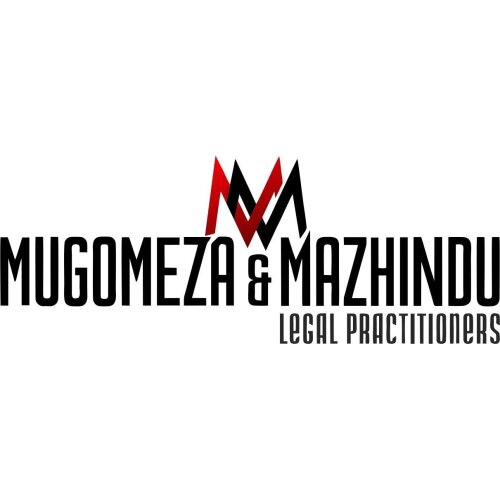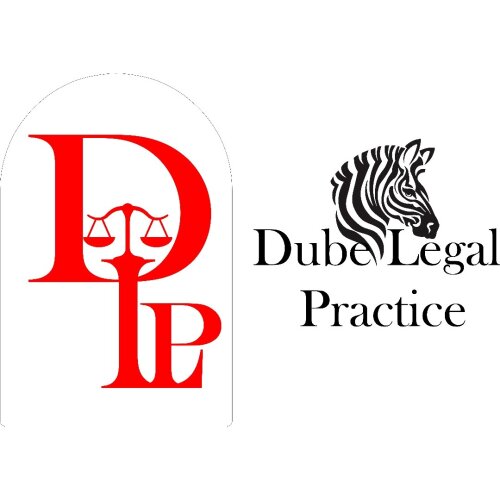Best Land Use & Zoning Lawyers in Zimbabwe
Share your needs with us, get contacted by law firms.
Free. Takes 2 min.
Free Guide to Hiring a Real Estate Lawyer
Or refine your search by selecting a city:
List of the best lawyers in Zimbabwe
About Land Use & Zoning Law in Zimbabwe
Land Use & Zoning Law in Zimbabwe is primarily concerned with the regulation and planning of land use to promote sustainable development. These laws determine how land in various zones can be used, including residential, commercial, agricultural, and industrial uses. The framework aims to balance public and private interests, facilitate orderly urban development, and manage natural resources efficiently. Key regulatory bodies like the Ministry of Local Government, Public Works and National Housing oversee implementation and enforcement. All development must adhere to the Urban Councils Act and the Regional, Town and Country Planning Act.
Why You May Need a Lawyer
There are several scenarios where legal assistance in Land Use & Zoning will be crucial:
- When applying for a zoning change or special use permit.
- If you are involved in a land dispute or boundary issue with a neighbor.
- When the government intends to take your land through eminent domain.
- If you are developing property and it is necessary to ensure compliance with local zoning laws.
- When challenging or appealing a municipal decision affecting your property rights.
- Understanding the implications of a proposed land use plan on your property investment.
- Resolving issues related to landownership or title deeds.
Local Laws Overview
Zimbabwe's land use and zoning laws are enshrined in several statutes, key among them being the Regional, Town and Country Planning Act which provides the basis for application processes for development permits and change of use applications. The Urban Councils Act also governs how municipal land can be utilized. Key elements of these laws include:
- Zoning Regulations: Defines allowable land use in different zones including residential, commercial, and industrial zones.
- Development Permits: Required for new developments, ensuring that construction complies with zoning laws.
- Environment Management: Emphasizes sustainable use of land and environmental protection.
- Eminent Domain: Government's power to reclaim land for public use, with compensation provided.
Frequently Asked Questions
What is the process for changing land use in Zimbabwe?
The process involves applying to the local authority, where the application will be evaluated based on regional plans, environmental impact assessments, and public interest before approval is granted.
Can I build a factory in a residential zone?
No, residential zones have specific land use regulations prohibiting industrial activities. You would need to apply for a change of land use or find a zone designated for industrial activities.
What happens if I build without a permit?
Building without a permit is illegal and could result in penalties, demolition of the constructions, or other legal ramifications. It's essential to acquire the necessary permits before beginning any construction.
How can I resolve a land boundary dispute?
Boundary disputes are usually resolved by hiring a registered land surveyor to verify boundaries, and if unresolved, legal representation may be necessary to pursue the matter in court.
What is the role of the EMA in land use?
The Environmental Management Agency (EMA) ensures environmental considerations are integrated into land use planning processes and regulates activities affecting the environment.
Who enforces zoning laws in Zimbabwe?
Zoning laws are enforced primarily by local authorities under the guidance of the Ministry of Local Government, Public Works and National Housing.
Can land be taken by the government for public use?
Yes, under the principle of eminent domain, the government can claim private land for public use, but fair and adequate compensation must be provided.
How do I appeal a planning decision?
Appeals can be lodged with the Administrative Court if you believe a decision has been made unjustly regarding land use applications or permits.
What types of developments require environmental impact assessments?
Projects that may significantly affect the environment, such as construction projects in sensitive areas, large industrial facilities, and infrastructure projects, require an Environmental Impact Assessment (EIA).
What is the Urban Councils Act?
The Urban Councils Act provides a regulatory framework for urban land use and development in Zimbabwe, detailing the authorities' powers regarding zoning and planning in urban areas.
Additional Resources
- Ministry of Local Government, Public Works and National Housing
- Environmental Management Agency (EMA)
- Zimbabwe Land Commission
- Local municipal councils and planning offices
- Zimbabwe Institute of Regional and Urban Planners
Next Steps
If you need legal assistance in Land Use & Zoning, consider the following steps:
- Consult with a lawyer specializing in land use and zoning law in Zimbabwe to understand your rights and obligations.
- Gather all relevant documents, such as property titles, maps, and any previous permits or correspondence with local authorities.
- Seek advice from your local municipal office for guidance on specific applications or procedures.
- Consider engaging a registered land surveyor for technical assessments related to boundary disputes or development potential.
Having legal counsel can be essential in navigating the complex aspects of land use and zoning law, protecting your rights, and ensuring compliance with local regulations.
Lawzana helps you find the best lawyers and law firms in Zimbabwe through a curated and pre-screened list of qualified legal professionals. Our platform offers rankings and detailed profiles of attorneys and law firms, allowing you to compare based on practice areas, including Land Use & Zoning, experience, and client feedback.
Each profile includes a description of the firm's areas of practice, client reviews, team members and partners, year of establishment, spoken languages, office locations, contact information, social media presence, and any published articles or resources. Most firms on our platform speak English and are experienced in both local and international legal matters.
Get a quote from top-rated law firms in Zimbabwe — quickly, securely, and without unnecessary hassle.
Disclaimer:
The information provided on this page is for general informational purposes only and does not constitute legal advice. While we strive to ensure the accuracy and relevance of the content, legal information may change over time, and interpretations of the law can vary. You should always consult with a qualified legal professional for advice specific to your situation.
We disclaim all liability for actions taken or not taken based on the content of this page. If you believe any information is incorrect or outdated, please contact us, and we will review and update it where appropriate.
Browse land use & zoning law firms by city in Zimbabwe
Refine your search by selecting a city.
















